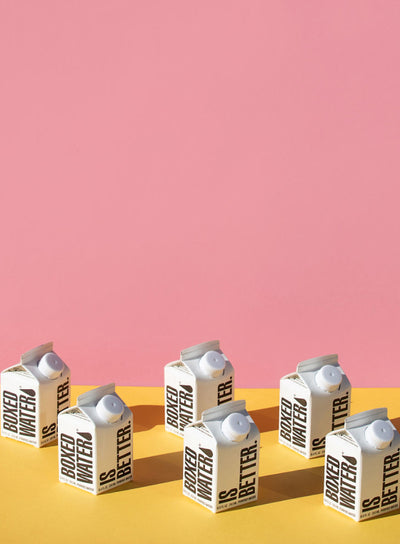Last month, Iceland (yes, U.K.-based supermarket, not the country) announced its plan to eliminate all plastic packaging from its 900 stores in five years. This came just a week after Prime Minister Theresa May announced a 25-year goal to eradicate ‘avoidable’ plastic.
As the Daily Mail reported, “packaging on 1,400 product lines will be replaced and changes will involve more than 250 suppliers.” Instead, they’ll be turning to paper and wood-pulp alternatives.
Other companies have been quick to join May and Iceland. Fast-food giant McDonald’s also announced that their ambitious plan to source all packaging worldwide from sustainable sources by 2025. This includes their bags, straws, cups and wrappers, which they say will be sourced from recycled or renewable resources.
In an interview with BBC, McDonald's Chief Supply Chain and Sustainability Officer Francesca DeBiase underscored customer’s foremost request “to use less packaging, sourced responsibly and designed to be taken care of after use.”
This is only the most recent in a steady trend of sustainability measures that companies are taking to reduce plastic or ditch it all together.
Coca-Cola most recently launched a new campaign - A World Without Waste addressing new company packaging goals. Their CEO James Quincey addressed the plastic issue by stating, “If left unchecked, plastic waste will slowly choke our oceans and waterways.”
In 2014, Unilever quit using plastic microbeads in their exfoliation products “in response to concerns about the build-up of microplastics in oceans and lakes.” Detailed on their website, they list alternative exfoliating ingredients, like cornmeal and walnut shells, that are now used in their personal care products.
But, you don’t have to be a mega brand to make a sustainable difference. As a consumer, you vote every day with your money to support companies who put the earth first.
-
The less plastic, the better: Opt for products that are made with recycled plastic or use materials made from renewable resources like paper or hemp. For example, instead of buying plastic water bottles, reach for Boxed Water instead. It’s 100 percent recyclable and made from 74 percent of renewable raw materials.
-
Practice plastic-free shopping: The next time you go to the store, try to buy foods and products that aren’t made of – or are packaged in – plastic. Extra bonus points when you use your reusable shopping bag.
- Watch what you eat: Think back to the last time you had takeout. Remember those Styrofoam clamshell containers? These are made from a plastic material called polystyrene. Avoid these types of products as they are not a widely accepted recycling material.
By implementing the steps above, you’re promoting a plastic-free lifestyle. At Boxed Water, we’re not satisfied with the status quo – we’re always looking for new ways to make a positive impact on the planet. Have an idea or project we should know about? Reach out to us on Facebook, Twitter or Instagram. It will take all of us, together, to make a plastic-free world become a reality.

